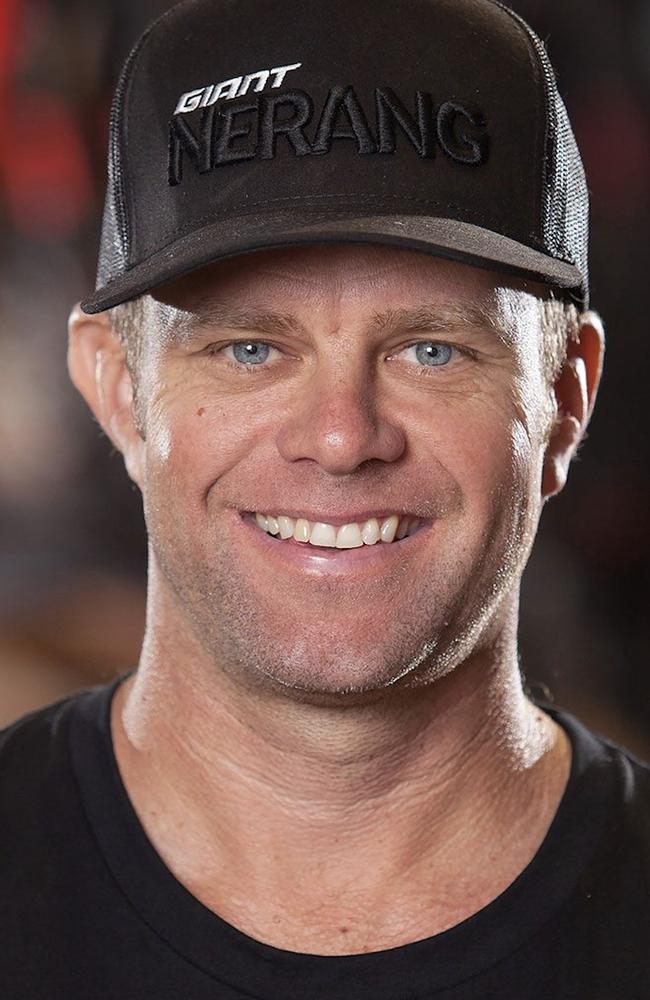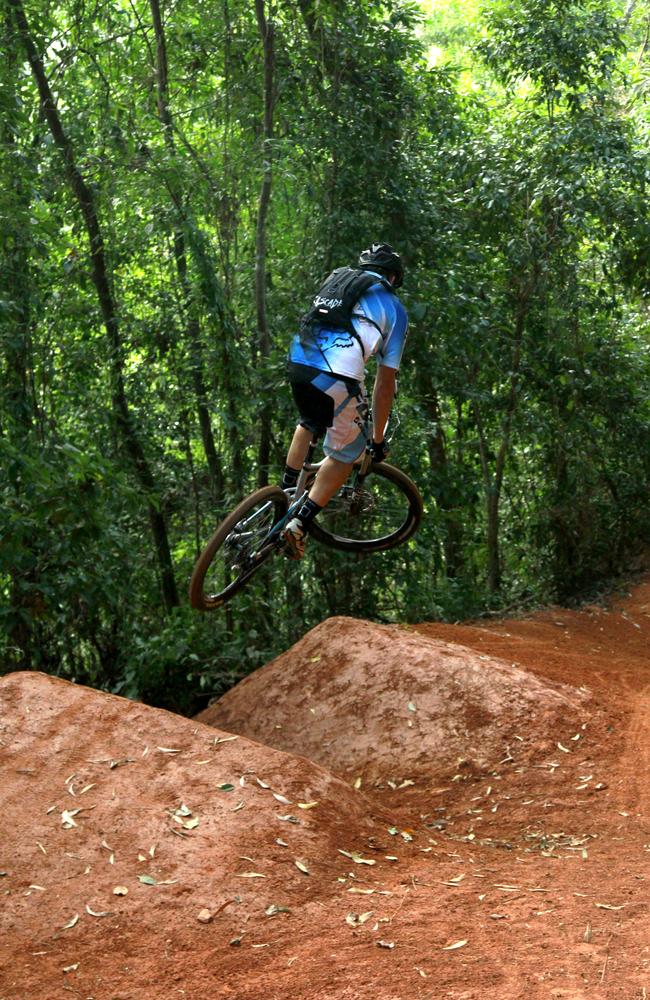Michael Ronning says Gold Coast roads aren’t safe for cyclists
While the city encourages residents to get on their bikes, champion cyclist Michael Ronning says our roads are simply not safe for riders.
Gold Coast
Don't miss out on the headlines from Gold Coast. Followed categories will be added to My News.
It’s not just property that’s boomed.
Thanks to the pandemic, the Gold Coast’s MAMIL population is positively surging.
Actually, this two-wheeled species is not only restricted in middle-aged men in Lycra, but also women and even children, with statistics showing that our number of cyclists in the city has spiked since Covid first began,
While the bike boom is a national phenomenon, with cycling levels around Australia increasing by up to 69 per cent compared to pre-pandemic, it’s not necessarily a smooth ride on the Gold Coast.
Unlike cities such as Canberra, with an extensive network of separated bike lanes where cyclists can safely pedal at speed, this city primarily squeezes cyclists in beside vehicles - often with deadly results.
From 2010 to 2016, the number of cyclists hospitalised from road crashes per 100,000 population increased by 4.7 per cent per year, while the rate fell for motor vehicle occupants and pedestrians
Each year, an average of about 36 cyclists are killed and about 7000 are hospitalised as a result of crashes on Australian public roads.
But it’s not only clashes between cars and bikes that are dangerous, but between drivers and the cyclists themselves.
In March last year, a Gold Coast driver was charged after a brutal attack on a cyclist at a Benowa intersection, with CCTV footage showing the driver punching the cyclist before shoving him into oncoming traffic and robbing him.
Meanwhile, a cyclist who punched a motorist after he was almost run down on a Gold Coast street was acquitted of assault charges in 2021.
It’s this battle on the bitumen that is the reason that former cycling champion and owner of Giant Nerang cycling store Michael Ronning rarely rides on our roads anymore.

“There is just a lot of aggression out there, and it comes from the fact that everyone is fighting for space,” says Michael, a former five-time Australian downhill cycling champion.
“I try to steer clear of the roads for that reason, and I know many others do too.
“I’m not saying that cyclists are always in the right, there are two sides to this story. Too many drivers without enough tolerance or patience, and there are cyclists who antagonise motorists as well, or who ride more than two abreast.
“Unfortunately, when it comes to an actual clash between car and bike, it’s always the cyclist who will come off worse.
“Gold Coast roads struggle for enough space just for vehicles, being a cyclist out there doesn’t always feel safe … and statistics show that’s a reality.”
However, the City of Gold Coast is working hard to encourage more cycling on our streets, with the City Transport Strategy 2031 aiming for riding to represent six per cent of all daily trips for the average resident.
The council is also progressively installing green bicycle lanes at major intersections within the cycle network to increase motorist awareness of bike lanes at the approaches and departures of signalised intersections and roundabouts.
Meanwhile, the advanced cyclist stop line at intersections allows riders to queue in front of vehicles at traffic signals, improving rider visibility and reducing conflict associated with vehicles turning left across riders proceeding straight through the intersection.
But Michael says more can and must be done.
“We simply need better infrastructure for riding,” he says.
“It’s hard to encourage people to get out there riding when they don’t feel safe.
“Cycling as a sport is growing bigger than ever, and so many people have bought bikes over the pandemic, there is real interest here which makes investment a no-brainer.
“Even more important for the city than residents cycling for fun or for sport is for them to cycle for their commute, anything that can help ease congestion is necessary.
“It’s not just a matter of upgrading roads but building dedicated and separated bike paths, cyclists don’t have to follow the same route as the road. Just look at Canberra, they’ve kept those lanes completely separated and that’s probably one of the most popular cities for cycling.
“Even when we advertise the Oceanway as a great bike path, we’re still looking at cyclists next to pedestrians which, once again, can a be a dangerous mix of speeds. We need dedicated lanes for bikes if we really want to see a true cycling commute culture created.”

After competing in Europe for a number of years, Michael says many of its cities have created the perfect environment for cyclists.
Currently, in Paris, France, mobility systems have been redesigned to include cycling infrastructure at unprecedented levels, with plans for more than 650 kilometers of new cycleways.
Meanwhile, in Slovenia’s capital city of Ljubljana, the city centre has been redesigned to accommodate car-free zones in order to encourage pedestrians and cyclists.
A report shows that since its implementation in 2007, there has been a steady increase in pedestrian and cyclist footfall, while carbon dioxide emissions have dropped by 70 per cent and noise has dropped by an average 6 decibels.
Michael says with so many new residents arriving on the Coast from our southern states and overseas, cycling can be a great way to get to know the city - as well as its residents.
But he says it will only provoke more problems until we invest in better infrastructure to make cycling safe.
“It’s such a social sport - just look at any cafe on any given morning and you’ll see the Lycra crews there,” he says.
“It’s a great way to meet new people and get to know the city.
“But we have to stop thinking of cycling routes as an add-on or an extra option, we need to make it part of our integral transportation plan moving forward.”
When it comes to the argument that cyclists should be paying for their use of our roads - or future paths - in the form of registration, Michael says the idea simply isn’t practical.
Besides, he says cyclists are already paying it forward by easing congestion and pollution.
“It’s a regular argument that we hear, that registration is the solution to the problems of sharing the road. But not a single country in the world has bike registration, and it would be all but impossible to enforce.
“I don’t see how it would fix anything, anyway. The solution we need is more space - and more understanding between those on two wheels and those in four.
“The Gold Coast can be the best cycling city in the world if we want to make it, and that’s something that can benefit all of us.”
More Coverage
Originally published as Michael Ronning says Gold Coast roads aren’t safe for cyclists





